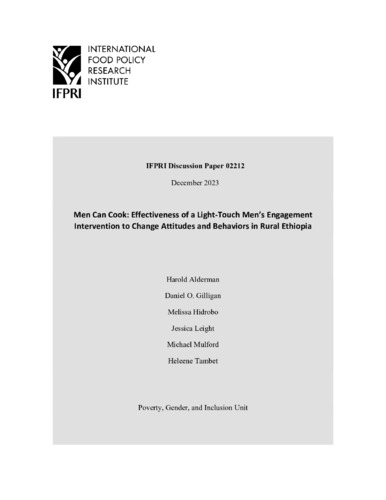Men can cook: Effectiveness of a light-touch men’s engagement intervention to change attitudes and behaviors in rural Ethiopia
Abstract
Graduation model interventions seek to address multiple barriers constraining households’ exit from poverty, however, few explicitly target unequal gender norms. Using a randomized control trial design, combined with three rounds of data, we investigate the impacts on gender equitable attitudes and behaviors of a graduation program that seeks to simultaneously “push” households out of poverty and improve unequal gender norms in Ethiopia. We find that at midline all treatment arms lead to improvements in men’s gender equitable attitudes and their engagement in household domestic tasks as reported by both men and women; but at endline, impacts are only sustained in the treatment arms that introduced men’s engagement groups after the midline survey to further promote improvements in equitable gender norms.

